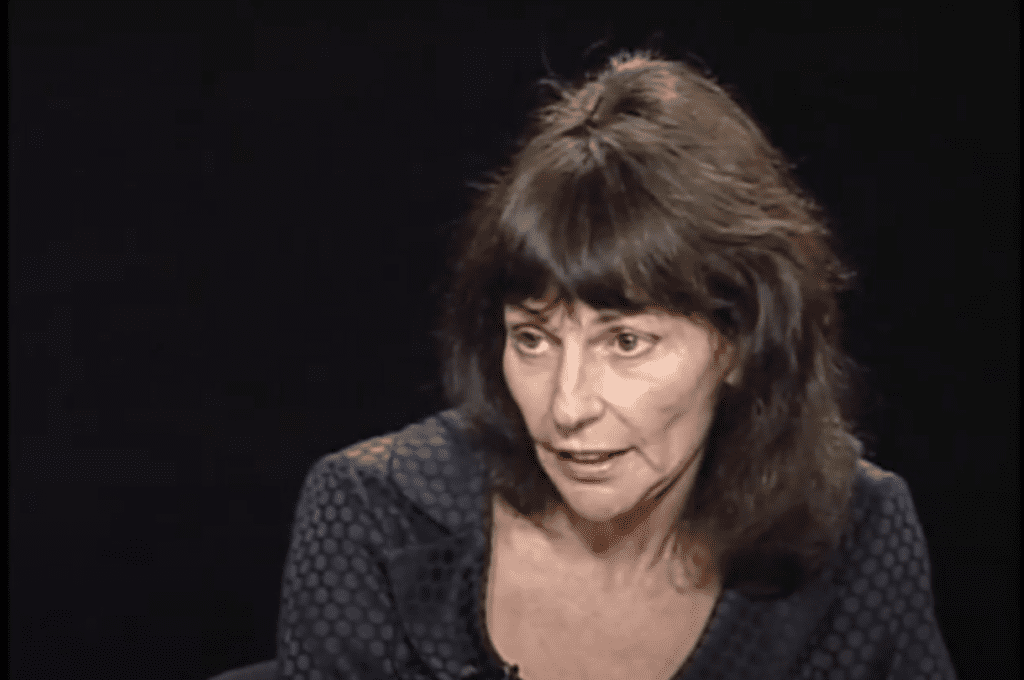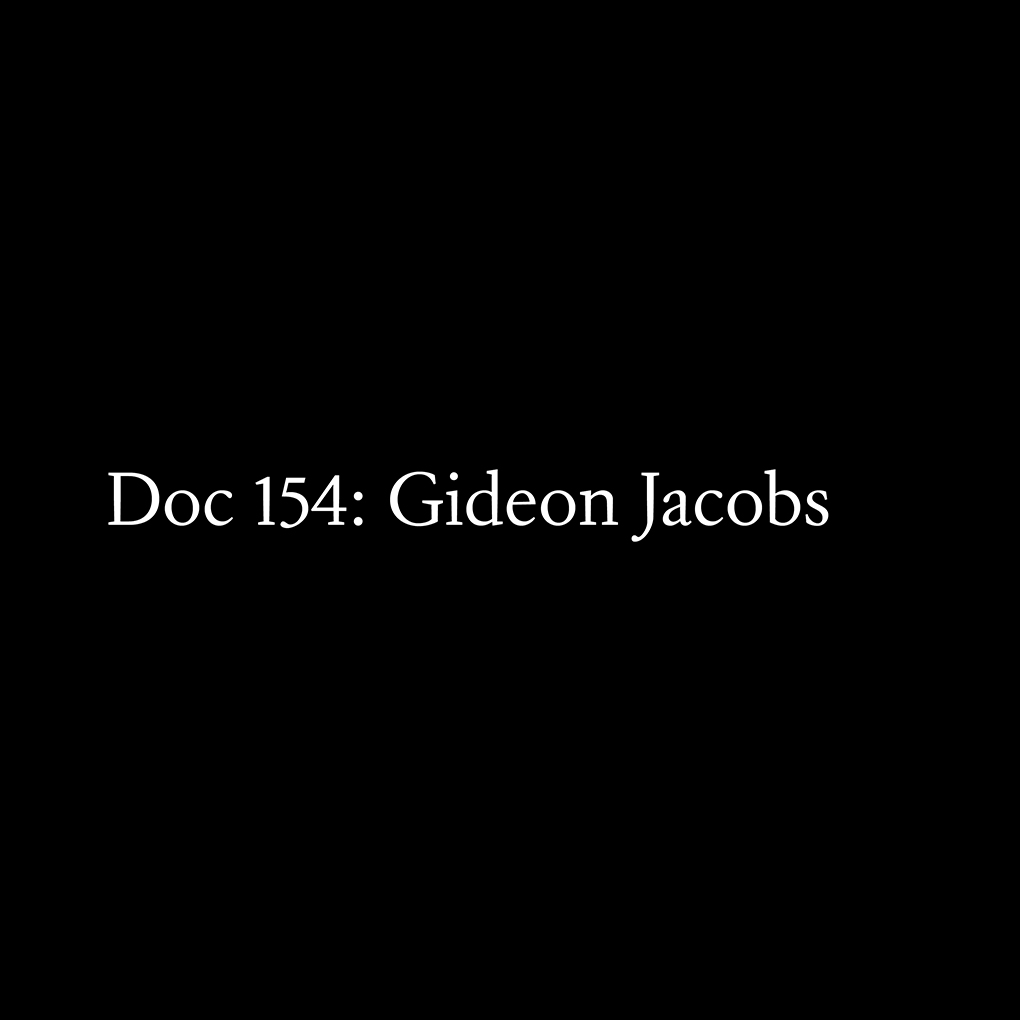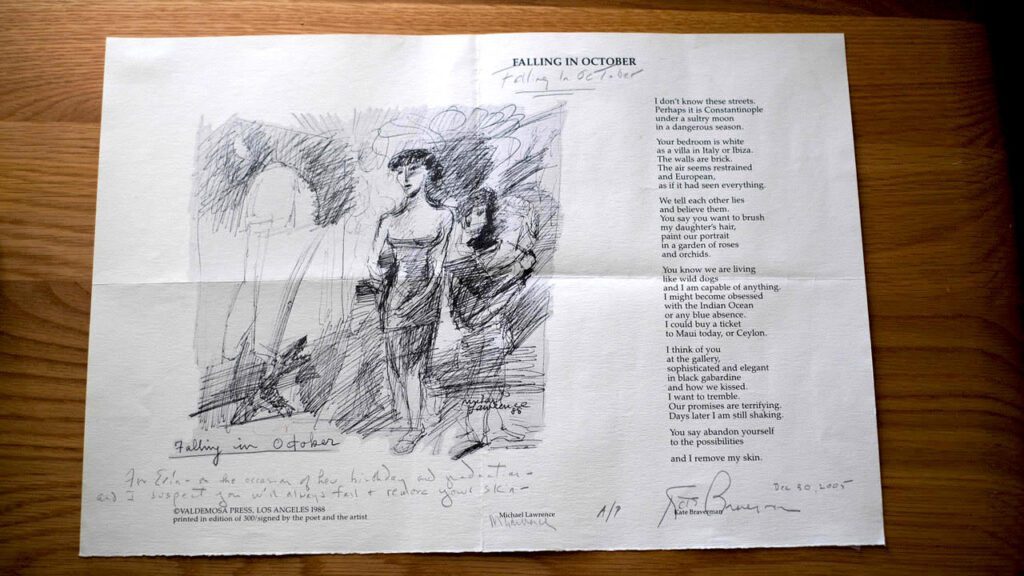
Like many memories, this one slips out of a sheaf of papers. A broadside from 2005. “Falling in October”, a poem by Kate Braverman with an illustration by Michael Lawrence. On thick, creamy stock it bears an inscription, “For Erin on the occasion of her birthday and graduation—and I suspect you will always fall and remove your skin.”
I don’t really recognize that time in my life anymore, and my first thought is how time makes us strangers to ourselves. I dip back into the memory of my graduation party at the house on Guerrero Street. In my usual manic energy, I had decided to build a paper mâché dragon in the kitchen, only serve vodka and a plate of sushi. To have Kate come to my graduation house party only added to the sense of culmination.
But as Kate’s poem says, “You know we are living like wild dogs/ and I am capable of anything.” We shared being feral and trying to get the sense of female desire, rage, hysteria. Reading through my endless composition notebooks, looking for the exact mise-en-scène of our meeting I find details of everything but the memory at hand. Our brains are a faulty retrieval system, but better than the seven notebooks from 2002 – 2005 where I wrote my daily impressions. I am trying to reconstruct an exact frame of mind and summon a scratchy hologram of the woman who is about to graduate with her MFA and is scared of being cast back into quotidian life.
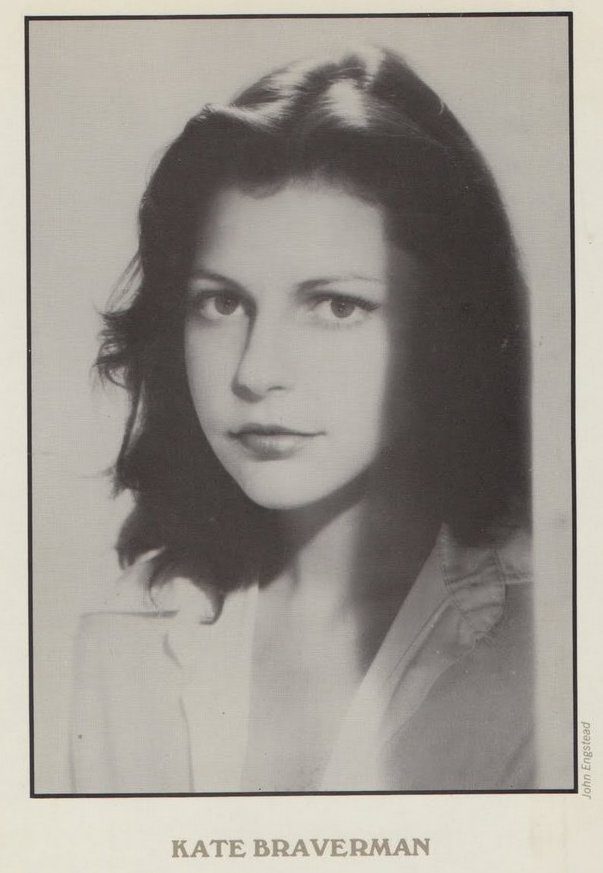
The voodoo of the page works, the scrawl uncovers the tasty details of scenes captured in ink. But not the ones I was looking for. That is the slippage of time. While on my search I get flung into other timelines, prompted to find the audiotape of the interview Kate granted me for then Oakland-based Kitchen Sink Magazine. After numerous moves, another form of slippage, my life in boxes forms another type of disorganized mind. I find the small cassette player with its miniature doll-like tapes. It has different interviews from another unrealized project, an anthology called “Alpha Female.” with speculative female-led fiction and interviews with Jeannie Epper and Zoe Bell, stuntwomen for Wonder Woman and Xena Warrior Princess.
Finally, I locate my hologram. In 2001, I am a single woman for the first time after leaving a ten-year relationship that started when I was nineteen. I write, I never should have thought this part of my life would be easy. As if by magic I could break up with Chuck, move 3,000 miles, lose my job, lose 50 thousand dollars in the stock market, and be rejected from grad schools and it would be fine and dandy. It is easiest to focus on the heartbreak.
I had been cosseted by hiding in my heteronormative, corporate, east coast life and suddenly erupted on the San Francisco scene; everything felt like a first again—dating, living alone, paying bills. It was like being scraped back to nothing and rebuilding myself, my persona, a layer at a time. I wanted to try everything and not adhere to anyone’s conception of who I should be. Everyone told me I was wrong—my desires were bad, even having desires was bad. Over and over I was told I was wrong to ask for more or to consider what I actually wanted. I was told I was angry as if by eliciting shame I would start to behave.
I consumed, wore costumes decorated with flames. I combusted. I crossed thresholds as if all inner chambers were mine to claim. I bounced off other people, sometimes as a particle and sometimes as a wave. I disappointed people, knew I was becoming a trope. And when I graduated I had made enough frenemies that I knew I needed a fresh start. I am proud to say I loved myself more than any of the others, and that I have no shame for the chiseling, second drafts, rewrites, pivots, and ugly cries. Out of the saltwater of insecurity, I became a woman alone.
Now I can see that I was consumed by eros, as the author and psychotherapist Esther Perel defines it: “Erotic as the antidote to death, a transcendent experience of life, an act of our imagination.” The erotic was a perfectly shaped door for me to walk through, leaving behind the death of my previous life and limning to a new unknown form. I wanted to live, and eros is the force of play between anxiety and fascination. It is present in the transgressive and echoes in a quote from my interview with Kate for Kitchen Sink Magazine:
- If women are going to write into their rage, passion, dirt, and blood, Braverman says, “You must commit felonies on the page. You must look for opportunity. You must break and enter. You must assume aliases, steal, ransack, confess and turn people in.” It is this passionate strategy that has fueled thousands of pages over twenty-five years. Each word is like a bullet, that when put together, conveys the lushness and hunger of what it is to write and to be female.
I interviewed Kate Braverman in 2005 for the 25th anniversary of her seminal novel Lithium for Medea. She cast herself as Medea, but to me she seemed more like a harpy. Like a skinny harpy—a half-bird, half-woman creature of Greek mythology, portrayed sometimes as a woman with bird wings and legs. A creature that speaks truth that men don’t want to hear, has bravado, beauty, access to dark thoughts, and the caustic bleaching reaction of too much sun.
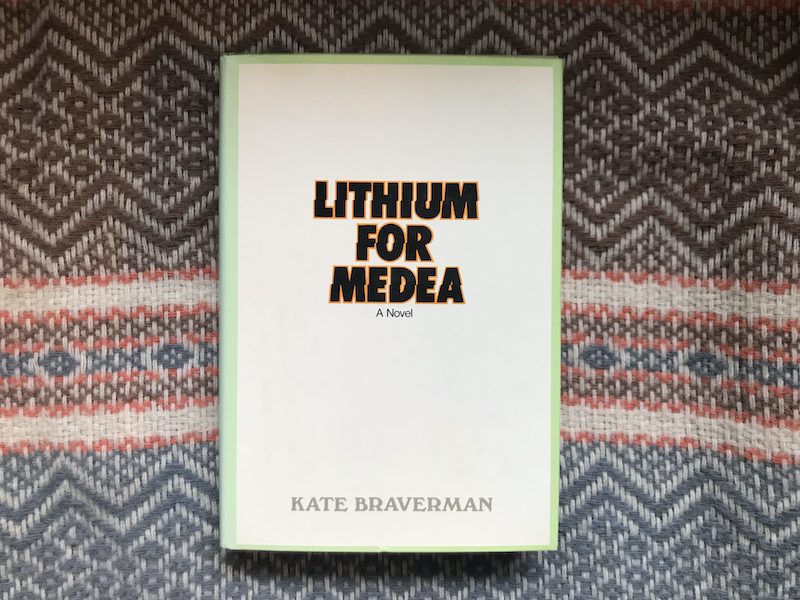
The throughlines were there. If Kate was Medea to herself, and a Harpy to me, I was one of the Erinyes or furies, as I wrote about my experiences furiously stalking a San Francisco full of desire. I understand there are times of our lives that feel “epic.” That we have dropped into narrative historical time as a character in “a long poem, typically one derived from ancient oral tradition, narrating the deeds and adventures of heroic or legendary figures or the history of a nation.” 1
In my numerous romantic quests, attempts at creating art, and the desire to alchemize my life into something with stable meaning I was shooting arrows at what it is to be a complicated, independent woman deeply perplexed by the station of women in our country. To be so wanted and desired and so hated.
The danger of creative eros, in very real terms, is that you may cross the threshold from being perceived as creative to crazy, from experimental to unintelligible, from the rider of eros to being trampled by its very force. It is a razor-thin bareback ride. Towards the end of her career, Kate publicly demanded a place in the literary canon. She appeared to be making an attempt to galvanize her immortal place in the halls of art.
In 2006, Anne-Marie O’Connor writing for the Los Angeles Times needled Kate Braverman for saying, “There is not another woman writer in Southern California who sits between Bellow and Conrad next to Hemingway and Kafka. I have the most literary stature, certainly, of any woman in Southern California.” Demanding a place in the literary firmament as a woman opened her up to derision by the same forces that smirked when Britney Spears lashed out at paparazzo with an old umbrella, and made money off of Amy Winehouse stumbling around on stage unable to remember the words to her own songs. Women cracking under the pressure of the gaze, and the glee of other women proving (in cracking) that we are not gods, but human.
For someone who was honest about her mental illness and also past drug use, I was disheartened by the tone of the article that portrayed Kate as a woman punching above her stature. If we have learned anything, yet again, it is that it should always be about the work. When our persona gets in the way of discussing our art, that is when we have a serious problem. I remember how often I was told that if I could just stop I might finally settle into the prize of acceptance. It is a conundrum that the source of the art, the wild writing, and explosions of feeling is the same thing that keeps women from being welcomed as artists.
I think I finally understand the full implications of Kate’s statement in 2006 to the San Francisco show Unscripted 2: “I do not write or live like a woman. I’m a complete outlaw in my sensibility and in my demand that women be given total access to the page, which they are not.” It is the exact problem we are facing in the 2020s—the total cognitive dissonance of archaic systems smashing into the ideals of fairness, equality, and justice… for all. Where Kate lands in the ever-morphing literary canon is anyone’s guess.
Over the course of deep time, we are all just playing on the mythopoetic stage, trying to use art to pierce immortality. In quite a few reminiscences by her students after her passing in 2019, she was described as cruel. Kate had said unkind things to me about a friend of mine who had studied with her. I knew not to get so close as to get cut, and that as a younger writer I was offering her entree into a new group of readers. We lost touch, as one does when falling and removing one’s skin. I’ve regenerated multiple times and am writing again with a renewed faith that art exists outside of our miniature time frames, points of view, and petty politics. After all, what happens when no one is alive to remember if you kept your pencils sharp, paid your bar tab, or remembered birthdays? Writing is one of the few ways to communicate across thousands of years about what is true and unyielding in the human heart.
1 “Epic.” Oxford Dictionary.
2 “Interview. Noted author Kate Braverman.” YouTube, uploaded by SFunscriptedTV, 1st May 2011, [Link].
Erin Jourdan is a Los Angeles-based writer and teacher. Her writing has been published in various journals including San Francisco Magazine, Fourth River, Reed Magazine, The Blue Earth Review, Hayden’s Ferry Review, and Copper Nickel. She teaches memoir/writing from personal experience classes to private clients and workshop groups.
